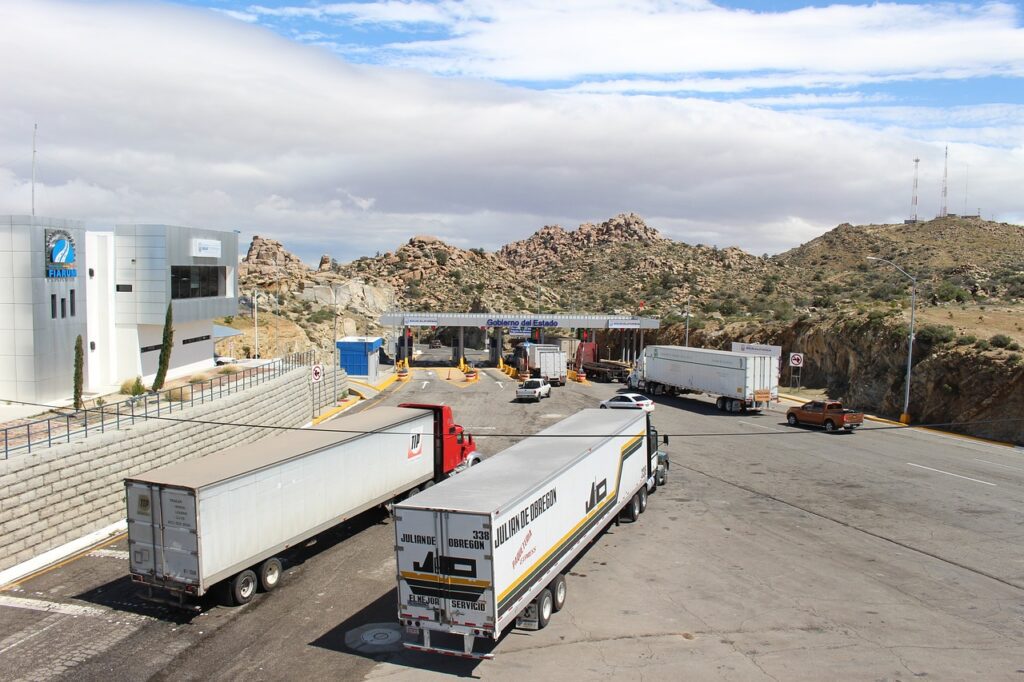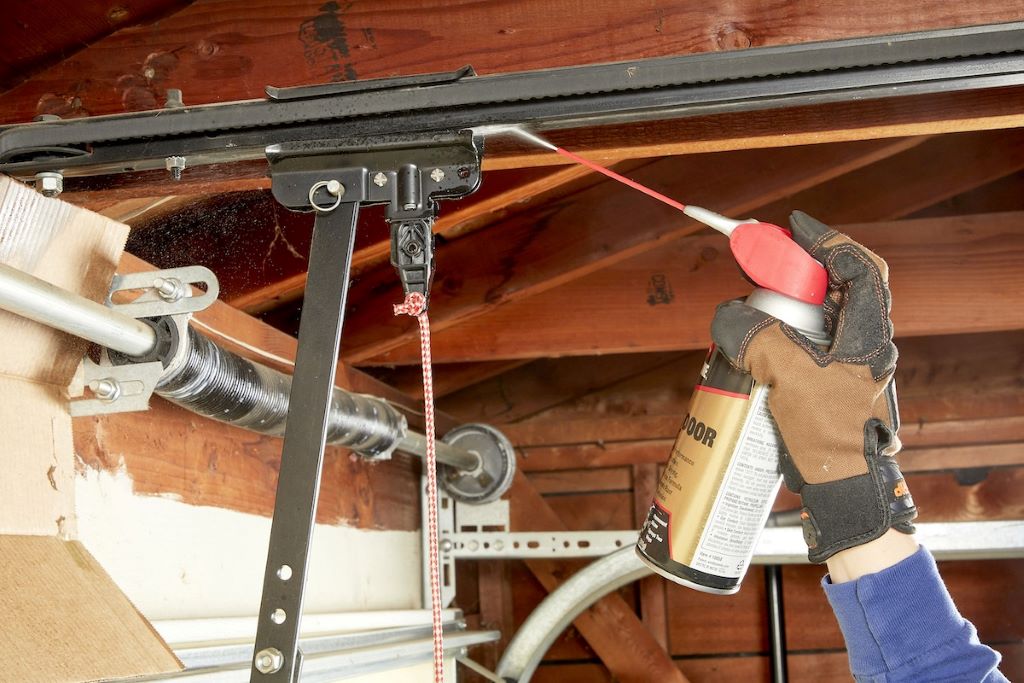If you’ve ever marvelled at the behemoth of the highways, the 53 foot trailer, you’re not alone. These colossal cargo carriers dominate the transportation industry, silently ferrying goods across vast distances. But have you ever wondered about their weight? It’s a question that lingers in the minds of many, and rightly so. How much weight can a 53 ft trailer hold and the legal weight for a 53 trailer are critical considerations for truckers, shippers, and regulators alike.
In this article, we’ll delve deep into the intricacies of these imposing giants, shedding light on their weight, capacities, and the regulations that govern them. Strap in as we unlock the mysteries behind the heft of the 53 foot trailer.
The Basics of Trailer Weight
Before we dive into the specifics, let’s start with the basics. A trailer’s weight refers to the total mass it adds to a vehicle when fully loaded. This weight includes not only the cargo it carries but also the trailer’s structure and any additional equipment.
Types of Trailers
There are various types of trailers used in the industry, each with its own weight characteristics. Common types include dry vans, flatbeds, refrigerated trailers, and more. The type of trailer you choose will impact its overall weight capacity.
Legal Weight Limits
Different regions and countries have legal weight limits for trailers. These limits are in place to ensure road safety and infrastructure integrity. Exceeding these limits can lead to fines and legal consequences.

Factors Affecting Trailer Weight
Cargo
The primary factor influencing a trailer’s weight is the cargo it carries. The weight of the goods being transported can vary significantly, from lightweight items like electronics to heavy materials like construction equipment.
Trailer Structure
The trailer’s structure itself contributes to its weight. The materials used, such as aluminum or steel, can impact its overall mass. Additionally, the design and size of the trailer also play a role.
Additional Equipment
Trailers often come equipped with various accessories, such as refrigeration units, liftgates, or aerodynamic add ons. These accessories add to the trailer’s weight but may be necessary for specific tasks.
Fuel and Fluids
The amount of fuel and fluids in the trailer can affect its weight. Trailers with full tanks or water tanks for refrigeration systems will be heavier than those without.
How to Distribute the Weight in a 53 Foot Trailer
The weight of the cargo in a 53 foot trailer should be evenly distributed to avoid overloading any one axle. The following are some tips for distributing the weight in a 53 foot trailer:
- Place the heaviest cargo in the center of the trailer.
- Avoid placing heavy cargo near the front or rear of the trailer.
- Use dunnage to fill in empty spaces and help distribute the weight evenly.
- If the trailer is not level, adjust the load to compensate for the slope.
Overloading a Trailer
Overloading a trailer can be dangerous for a number of reasons. It can increase the risk of accidents, damage the trailer, and put undue stress on the truck’s suspension. It can also lead to fines and penalties.
If you are loading a trailer, it is important to make sure that the weight is evenly distributed and that the overall weight does not exceed the legal limit. You should also check the weight rating of the tires to make sure that they are able to support the weight of the trailer and its cargo.

Trailer Weight Specifications
A standard 53 foot trailer typically has an empty weight of around 15,000 to 18,000 pounds. This weight can vary based on the manufacturer and materials used.
- Gross Vehicle Weight Rating (GVWR): This is the maximum weight that the trailer can weigh when loaded. It is important to stay within the GVWR to avoid overloading the trailer and causing a safety hazard.
- Gross Axle Weight Rating (GAWR): This is the maximum weight that each axle on the trailer can support. The GAWR is typically stamped on the axle itself. It is important to distribute the weight of the trailer evenly across all of the axles to avoid overloading any one axle.
- Unloaded Vehicle Weight (UVW): This is the weight of the trailer without any cargo or passengers. The UVW is important to know when calculating the GVWR.
- Cargo Carrying Capacity (CCC): This is the difference between the GVWR and the UVW. It is the amount of weight that the trailer can safely carry.
The weight specifications for trailers vary depending on the type of trailer. For example, a small utility trailer will have a lower GVWR and CCC than a large travel trailer. It is important to check the weight specifications for the specific trailer that you are considering before purchasing it.
In addition to the weight specifications, there are other factors to consider when choosing a trailer, such as the length, width, and height of the trailer, the type of hitch that you have, and the legal weight limits for trailers in your area.
Importance of Knowing Trailer Weight
Safety
The importance of knowing trailer weight cannot be overstated. It is essential for ensuring the safety of yourself, your passengers, and other road users. Here are some of the reasons why it is important to know the weight of your trailer:
- To avoid exceeding your vehicle’s towing capacity. Every vehicle has a maximum towing capacity, which is the maximum weight that it can safely tow. Exceeding this weight can cause the vehicle to fishtail, lose control, or even roll over.
- To properly distribute the weight of the trailer. The weight of the trailer should be evenly distributed across all axles. If the weight is not distributed evenly, it can cause the trailer to sway or fishtail, which can be dangerous.
- To ensure that the trailer brakes properly. The trailer brakes should be proportional to the weight of the trailer. If the trailer is too heavy, the brakes may not be able to stop it properly.
- To avoid overloading the trailer’s axles. Each axle on a trailer has a maximum weight capacity. Overloading the axles can cause the trailer to sag or collapse, which can be dangerous.
- To comply with the law. In many jurisdictions, there are laws that regulate the weight of trailers that can be towed by a particular vehicle. Knowing the weight of your trailer will help you ensure that you are complying with the law.
There are a few ways to find out the weight of your trailer. The first is to check the trailer’s weight rating plate. This plate is usually located on the trailer’s frame or tongue. The weight rating plate will list the empty weight of the trailer, as well as the maximum weight that the trailer can carry.
Safety and Legal Precautions
Adhering to weight regulations is not just a matter of safety but also legality. Avoiding fines and legal issues is essential for any transportation business. Here are some safety and legal precautions to take when towing a 53 foot trailer:
- Make sure your tow vehicle is properly equipped. Your tow vehicle must have a trailer hitch that is rated for the weight of the trailer. It should also have the proper tires and brakes.
- Distribute the weight of the trailer evenly. The weight of the trailer should be evenly distributed across all axles. If the weight is not distributed evenly, it can cause the trailer to sway or fishtail, which can be dangerous.
- Secure the load properly. The load on the trailer must be secured properly so that it does not shift during transport. Use tie downs or chains to secure the load in place.
- Check the trailer brakes regularly. The trailer brakes should be checked regularly to make sure they are working properly.
- Be aware of the length of the trailer. When driving with a trailer, be aware of its length and make sure you have enough space to maneuver.
- Obey all traffic laws. This includes speed limits, weight restrictions, and lane changes.
Fuel Efficiency
The fuel efficiency of a 53 foot trailer depends on a number of factors, including the weight of the trailer, the type of cargo it is carrying, the terrain, and the weather conditions. However, in general, a 53 foot trailer can get an average of 6 8 miles per gallon (MPG).
Here are some of the factors that can affect the fuel efficiency of a 53 foot trailer:
- Weight: The heavier the trailer, the more fuel it will consume.
- Cargo: The type of cargo being carried can also affect fuel efficiency. For example, trailers carrying heavier and denser cargo, such as steel coils, will consume more fuel than trailers carrying lighter and less dense cargo, such as consumer goods.
- Terrain: The terrain over which the trailer is being towed can also affect fuel efficiency. Trailers being towed over hills and mountains will consume more fuel than trailers being towed on flat roads.
- Weather conditions: The weather conditions can also affect fuel efficiency. Trailers being towed in windy or cold weather will consume more fuel than trailers being towed in calm or warm weather.
Conclusion
In the labyrinth of logistics, where precision reigns supreme, knowing the weight of a 53 foot trailer is paramount. How much weight can a 53 ft trailer hold? It’s a question that’s not just about numbers; it’s about efficiency, compliance, and profitability. Picture this: you’re on the brink of overloading, risking fines, and compromising safety. The anxiety is real. But worry not, for knowledge is power.
The legal weight for a 53 trailer can vary but typically hovers around 80,000 pounds. To navigate these weighty matters, meticulous planning, adherence to regulations, and staying informed are your allies. So, remember this: in the world of haulage, knowing your trailer’s weight isn’t just a number; it’s the key to a smoother journey.
FAQs
- Can I exceed the weight limits on a 53 foot trailer?
No, exceeding weight limits can lead to legal consequences and pose safety risks. Always stay within the specified weight limits.
- How can I calculate the weight of my cargo?
To calculate cargo weight accurately, you’ll need a scale or weighbridge. Simply weigh your loaded trailer and subtract the trailer’s empty weight.
- Are there weight limits for specific types of cargo?
Yes, certain types of cargo, like hazardous materials, may have specific weight limits and regulations that you must adhere to.
- What are some common ways to reduce trailer weight?
Reducing unnecessary cargo, optimizing trailer structure, and using lightweight materials can help reduce trailer weight.
- How do I ensure proper weight distribution in my trailer?
Proper weight distribution is essential for safe hauling. Ensure that the cargo is evenly distributed and that the trailer is balanced to prevent issues on the road.







